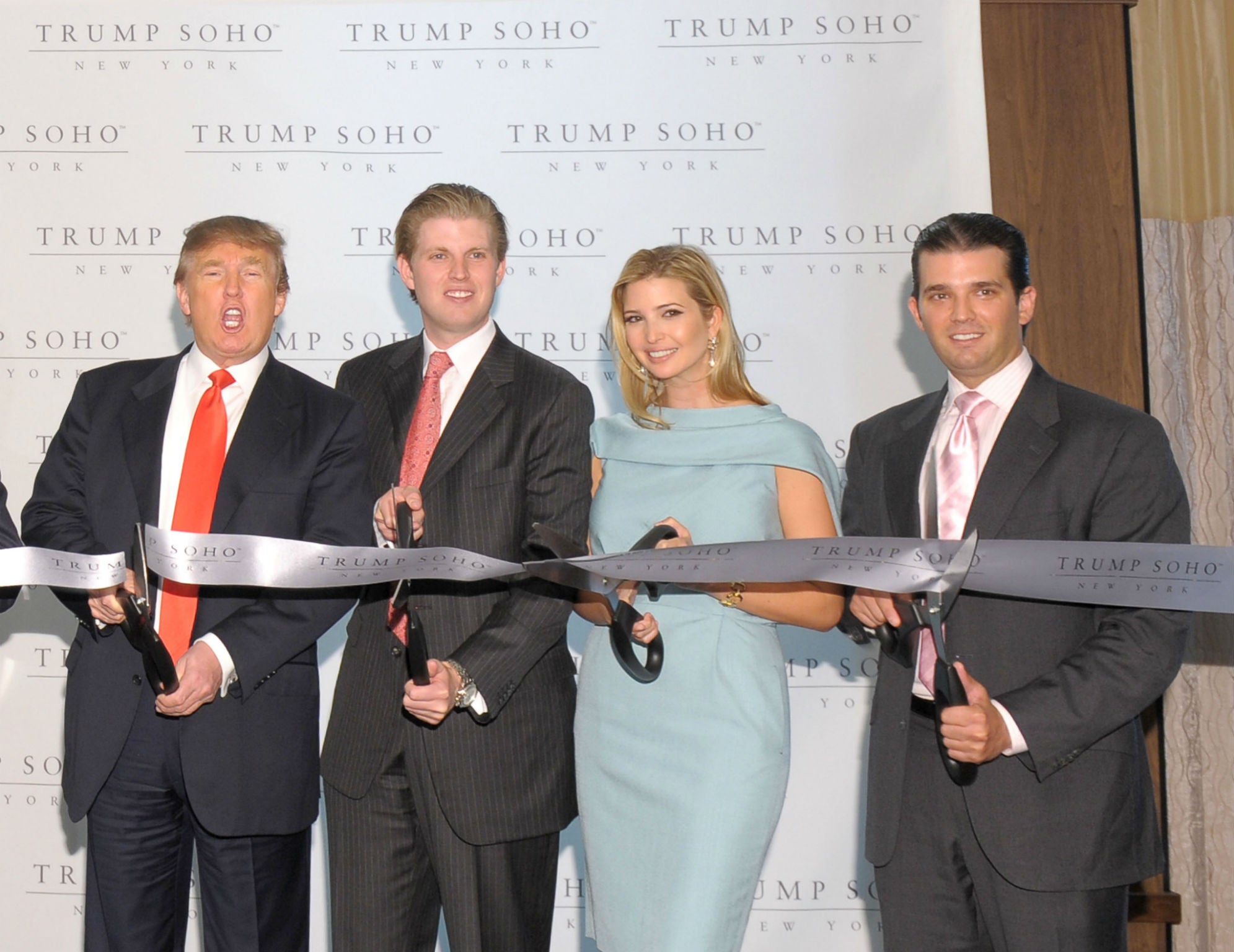Donald Trump signed off deal preventing collection of millions in US taxes
Mr Trump’s lawyer insists the mogul and reality TV star ‘had nothing to do with that transaction’

Your support helps us to tell the story
From reproductive rights to climate change to Big Tech, The Independent is on the ground when the story is developing. Whether it's investigating the financials of Elon Musk's pro-Trump PAC or producing our latest documentary, 'The A Word', which shines a light on the American women fighting for reproductive rights, we know how important it is to parse out the facts from the messaging.
At such a critical moment in US history, we need reporters on the ground. Your donation allows us to keep sending journalists to speak to both sides of the story.
The Independent is trusted by Americans across the entire political spectrum. And unlike many other quality news outlets, we choose not to lock Americans out of our reporting and analysis with paywalls. We believe quality journalism should be available to everyone, paid for by those who can afford it.
Your support makes all the difference.Donald Trump put his name to a business deal intended to prevent the US Government collecting up to $100m in taxes, it is claimed. The Daily Telegraph obtained copies of two letters signed by the presumptive Republican presidential nominee in 2007, in relation to a $50m deal between the Bayrock Group, a US property firm, and Iceland’s FL Group.
In the first letter, the money is characterised as an investment by FL in four of Bayrock’s subsidiary partnerships, including the Trump SoHo, Mr Trump’s cherished Manhattan hotel and apartment building. But in the second letter, signed several weeks later, the deal is instead described as a “loan”.
Court papers seen by the newspaper claim that the change amounted to fraud, and that the agreement was altered to avoid millions in prospective tax payments. When partners sell a stake in a partnership in New York, they are liable for more than 40 per cent in tax on their gain – but if such a deal is labelled as a loan, the tax is not applicable.
At the time of the deal, Mr Trump had licensed his name to three Bayrock building projects, including the Trump SoHo, in which Mr Trump had a 15 per cent stake. His children Ivanka and Donald Jr also shared a three per cent stake in the project. Bayrock’s ties to Mr Trump were close: the company was based in Trump Tower, and the agreement with FL specified that the billionaire’s consent was required for the deal to proceed.
Former Bayrock employees, including the firm’s former finance director Jody Kriss, have alleged in a legal complaint that the “loan” deal was designed specifically to evade around $20m in tax related to the sale, as well as an estimated $80 in taxes on FL’s future profits from the property deal. Experts who assessed the documents told the Telegraph that the deal did indeed appear to be disguised as a loan, not an equity investment, in order to avoid tax.
Mr Trump’s lawyer, Alan Garten, told the newspaper that the mogul and reality TV star “had nothing to do with that transaction” and that signing the letters simply confirmed his participation as a “limited partner” in the projects. “He was not signing off on the deal,” Mr Garten said, insisting Mr Trump was not connected to the agreement’s tax implications because he was not a “party” to the final transaction between FL and Bayrock.
Bayrock said the allegations in the complaint by its ex-employees were “baseless”, that the complaint itself was "no longer operative" and that many of the allegations it contained "were based on misappropriated attorney/client privileged information [and] ordered stricken by a federal Court." In a statement, the firm said the US Internal Revenue Service had audited the tax treatment of the FL loan found that it was "entirely appropriate," adding: "The terms, provisions and structure of the FL Loan transaction evolved (as do most such transactions) and its final form was vetted and approved by outside accountants and tax counsel for both Bayrock and FL."
FL Group went bankrupt shortly after the deal, during the Icelandic banking crisis of 2008.
Mr Trump has broken with recent political tradition by refusing to release his tax returns ahead of the presidential election in November, but said earlier this month that he “[fights] very hard to pay as little tax as possible.”
Join our commenting forum
Join thought-provoking conversations, follow other Independent readers and see their replies
Comments